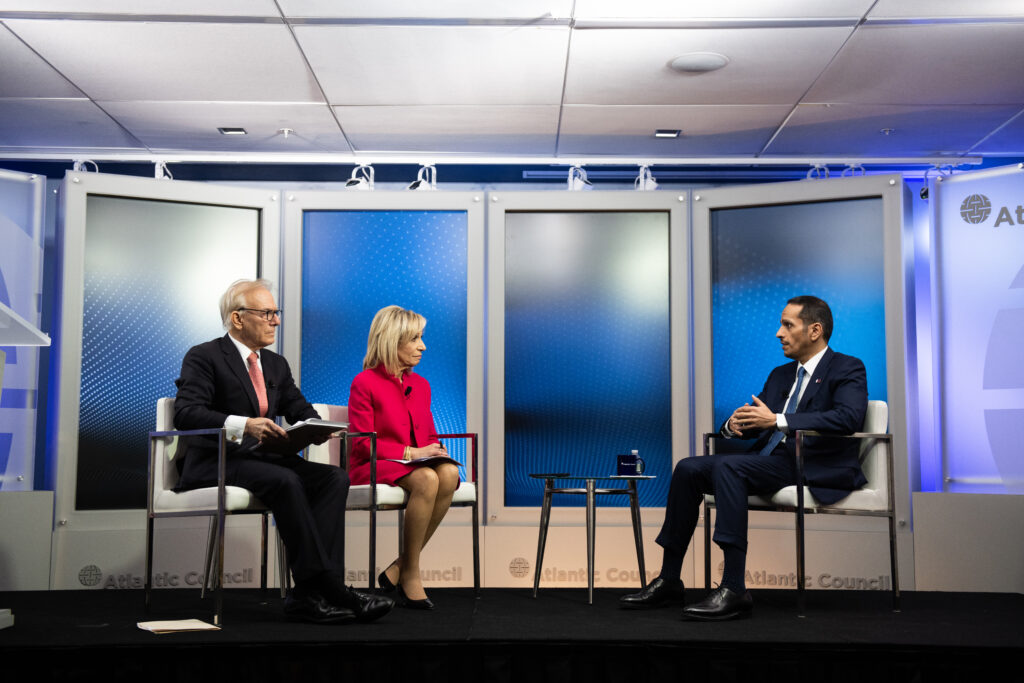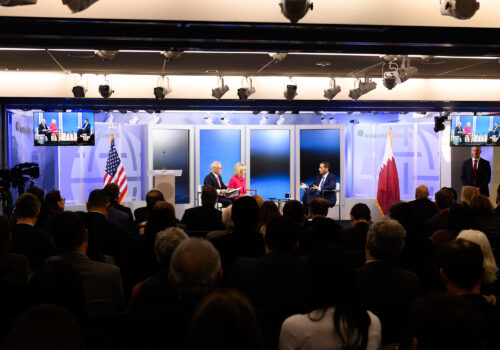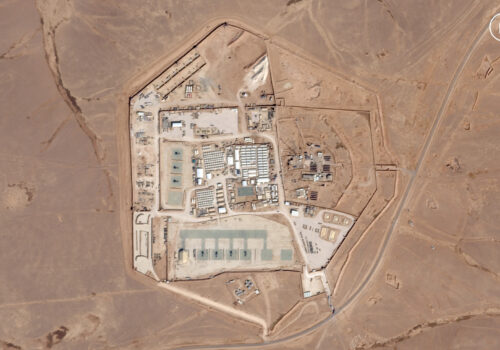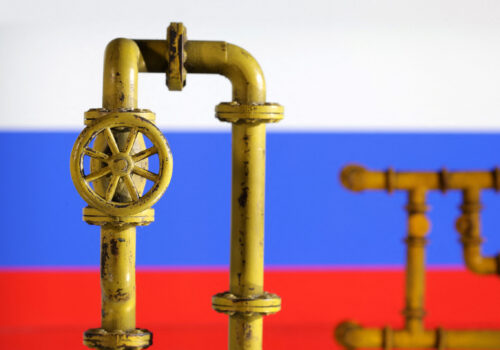The Qatari prime minister on what this weekend’s hostage negotiations say about the future of the Middle East
The Washington Post’s David Ignatius asked the Qatari prime minister—a renowned hostage negotiator—the question that was on the minds of the three American-Israeli families who were in the audience at yesterday’s Atlantic Council event, hoping to hear any words of hope for their sons who, along with more than a hundred others, have been held by Hamas for 115 days and counting.
“Tell me how this ends,” Ignatius asked, borrowing the question that General David Petraeus posed at the outset of the Iraq War.
Qatari Prime Minister Sheikh Mohammed bin Abdulrahman bin Jassim Al-Thani had just arrived in Washington from Paris, where he had spent the weekend with US Central Intelligence Agency Director Bill Burns and his Israeli and Egyptian counterparts.
He told Andrea Mitchell of NBC News, who was conducting the interview alongside Ignatius, that she was “well-informed” in saying that the parties had hammered out a framework through which the remaining hundred hostages would be released—women and children first—in exchange for a phased pause in the fighting. This would continue in phases, with aid flowing into Gaza as well.
What’s far from clear is whether Hamas leader Yahya Sinwar, apparently deep underground somewhere in Gaza, will accept the plan. Hamas previously demanded a permanent and immediate ceasefire for any of the hostages to be released.
Al-Thani sounded hopeful, saying Hamas had moved on from that absolutist demand and that he was relaying the proposal to them, hoping “to get them to a place where they engage positively and constructively in the process, because we think that in today’s world… that’s the only game in town now.”
It was a rare moment to hear the determined but soft-spoken Al-Thani on the record. He is known for his leadership in conflict mediation, including the release of more than a hundred hostages held by Hamas, a US-Iran prisoner exchange, the release of ten American hostages in Venezuela, and the freeing of Ukrainian children from Russia. (You can watch the full interview here or read the transcript here.)
Among those with the most at stake in Al-Thani’s success are the hostage families, a few of which joined our audience after being represented in a meeting earlier in the day with the prime minister. Their sons, among as many as six Americans being held hostage, include Edan Alexander, a twenty-year-old recent high school graduate from New Jersey; Omer Neutra, a twenty-two-year-old sports team captain from Long Island, New York; and Itay Chen, a nineteen-year-old former professional basketball player, whose family is also from New York.
As for Ignatius’s question of how this all ends, including how the Middle East might look in five years, Al-Thani conceded that there is a path that could lead to an even bigger war, but the opposite could also be true. The success of his mediation will be a leading indicator of what is possible.
“Just picture this,” he said. “If we can put an end [to] this conflict that’s been lasting for decades, the entire face of the region will change.”
Frederick Kempe is president and chief executive officer of the Atlantic Council. You can follow him on Twitter: @FredKempe.
This edition is part of Frederick Kempe’s Inflection Points Today newsletter, a column of quick-hit insights on a world in transition. To receive this newsletter throughout the week, sign up here.
Further reading
Mon, Jan 29, 2024
Qatar’s prime minister sees progress on Israel-Hamas hostage negotiations—but warns regional tensions are ‘boiling up’
New Atlanticist By Katherine Walla
At an AC Front Page event, Al-Thani discussed talks that took place in Paris over the weekend, which he said made “good progress” on mapping a way out of the conflict.
Sun, Jan 28, 2024
Will the US retaliate against Iran after a deadly drone attack?
Fast Thinking By Atlantic Council
Iran-backed militias just killed three US servicemembers in a drone attack in Jordan, and US President Joe Biden has promised to respond.
Thu, Jan 25, 2024
How Europe can escape its structural energy weakness amid great power competition
Report By Ben Judah, Tim Sahay, Shahin Vallée, and Francis Shin
This report argues that the EU will need to engage in deep structural and political reforms to reduce its reliance on fossil fuels.
Image: Photography by Clarissa Villondo www.clarissavillondo.com





